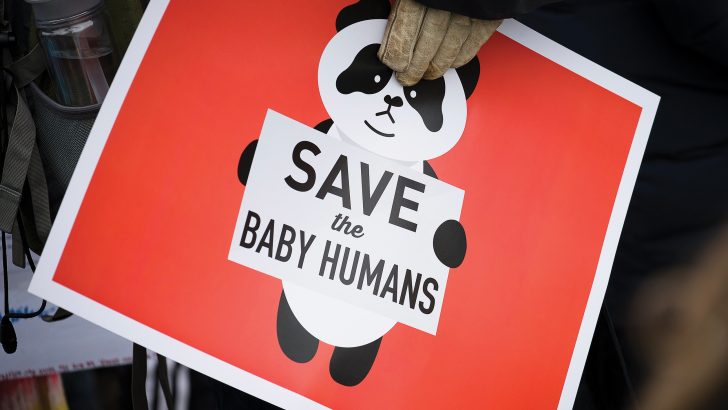A bill that would ban abortion of people with disabilities has split the pro-life camp, writes Ruadhán Jones
Early last week, the DUP announced that it would propose a bill seeking to outlaw abortions on children with disabilities such as Down Syndrome, cleft palate and club foot in the North. The Severe Foetal Impairment Abortion (Amendment) Bill, proposed by Paul Givan, would amend the Abortion Regulations 2020 to prevent abortions being carried out on children with ‘non-fatal disabilities’.
Many in the North were angered when Westminster imposed abortion on the region through section 9 of the Northern Ireland (Executive Formation etc.) Act 2019, despite a lack of consultation or support from the people. As a result, you might expect that Mr Givan’s move now would be very popular among pro-life organisations in the North who have been fighting the new abortion regulations since they were introduced early last year.
However, Mr Givan’s Bill was accused of being “merely symbolic” by the Society for the Protection of Unborn Children (SPUC). They are calling on the bill to be withdrawn for fear that it might “legitimise the legislation of abortion imposed on the province last year by the London government” and to be replaced by a bill to “repeal the legislation Westminster imposed in violation of the devolution settlement”.
Philip Lynn, SPUC’s Northern Ireland development officer, said in a statement that “despite (abortions of non-fatal disabilities) being statistically insignificant, it would lend democratic legitimacy to the 99.993% of abortions which would fall outside the scope of the bill — legitimacy that they would not otherwise enjoy. It could also seriously undermine the chances of repealing the radical legislation imposed by Westminster by creating the false impression that it is less extreme than it really is.”
Agencies
SPUC would prefer – as would all the pro-life agencies and supporters – to remove the legislation in its entirety. The problem, is tthat isn’t feasible as there simply is not sufficient support in the Assembly at present. Because of this, the DUP’s Bill has been carefully worded to ensure it receives the support it requires to pass.
Were it to seek any stricter legislation, it would run the risk of being voted down. This, says Tracey Harkin of the Iona Institute NI, would serve to legitimise the legislation in exactly the manner the SPUC fear. She says that while the bill “isn’t perfect”, Iona is supporting it because “it is a step in the right direction”.
“While the Iona Institute NI will continue to seek the full legal protection of the right to life for every unborn child, this bill is an important step in the right direction,” she said. “We need to support their efforts to push back against this law. If the bill was more bracing and sought to protect more babies and it failed, it would almost legitimise the legislation.”
There may be a lesson in this for pro-life advocates across the island of Ireland. There is a temptation to be ‘all-or-nothing’ because abortion is a grave moral evil. It sets an easy marker down to know the true pro-lifers from the false. There are also going to be situations where compromise isn’t the answer.
Fighting
But to suggest that fighting only one type of it is not enough risks making the perfect an enemy of the good. And it is certainly a good that children are not aborted for having Down Syndrome, a cleft palate or a club foot. If it were to pass, lives will be saved – and by no means will it end the cause.
This is what St John Paul II had in mind in 1995 when he taught that: “when it is not possible to overturn or completely abrogate a pro-abortion law, an elected official – whose absolute personal opposition to procured abortion was well known – could licitly support proposals aimed at limiting the harm done by such a law and at lessening its negative consequences at the level of general opinion and public morality.
“This does not in fact represent an illicit cooperation with an unjust law, but rather a legitimate and proper attempt to limit its evil aspects” the Pontiff taught in Evangelium vitae.
The DUP move could be an important first step.


 Ruadhán Jones
Ruadhán Jones
